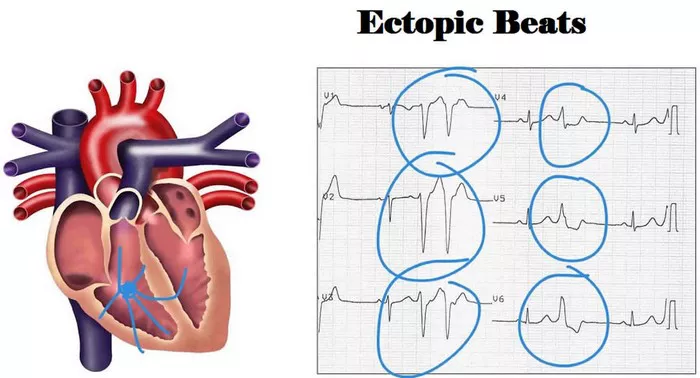In recent months, concerns have emerged regarding the potential link between certain COVID-19 vaccines and myocarditis, a condition characterized by inflammation of the heart muscle. While reports of myocarditis following vaccination have garnered attention, it’s essential to contextualize these findings within the broader landscape of COVID-19 infection and vaccination efforts. In this article, we’ll explore the risk of myocarditis associated with COVID-19 vaccines, compare it to the risks posed by COVID-19 infection itself, and underscore the importance of vaccination in mitigating the overall burden of the pandemic.
What Is Myocarditis And COVID-19 Vaccines?
Defining Myocarditis:
Myocarditis is a condition characterized by inflammation of the myocardium, the muscular layer of the heart. While myocarditis can arise from various causes, including viral infections and autoimmune disorders, recent attention has focused on potential cases occurring after COVID-19 vaccination.
Reports of Myocarditis Post-Vaccination:
Several COVID-19 vaccines, particularly mRNA vaccines such as Pfizer-BioNTech and Moderna, have been associated with rare cases of myocarditis, predominantly among younger individuals, particularly males. These cases typically present with chest pain, shortness of breath, and elevated cardiac biomarkers within days after vaccination.
Risk Factors and Mechanisms:
The exact mechanisms underlying vaccine-associated myocarditis are still under investigation. However, it’s hypothesized that the immune response triggered by the vaccine, particularly in younger individuals with robust immune systems, may lead to an inflammatory reaction affecting the heart muscle.
Comparative Analysis:
Studies suggest that the incidence of myocarditis following COVID-19 vaccination is exceedingly rare, estimated to be around 1 in 100,000 to 1 in 1 million doses administered.b. Risk of Myocarditis with COVID-19 Infection: In contrast, the risk of myocarditis associated with COVID-19 infection itself appears to be significantly higher. Emerging data indicate that COVID-19 can directly infect myocardial cells, leading to myocarditis and other cardiac complications. Studies have shown that COVID-19 infection is associated with a substantially increased risk of myocarditis compared to vaccination,particularly among younger individuals.
Comparing Risks and Benefits:
Highlighting the Significantly Higher Risk of COVID-19-Associated Myocarditis: The risk of developing myocarditis following COVID-19 infection far outweighs the risk associated with vaccination. COVID-19 can induce severe systemic inflammation and immune activation, increasing the likelihood of myocardial involvement and subsequent complications. By opting for vaccination, individuals can significantly reduce their risk of COVID-19-related myocarditis while also contributing to broader efforts to control the spread of the virus.
Emphasizing the Overall Benefits of Vaccination:
Despite the rare occurrence of vaccine-associated myocarditis, the benefits of COVID-19 vaccination remain substantial. Vaccination has been shown to be highly effective in preventing severe illness, hospitalization, and death from COVID-19 across all age groups. By bolstering population immunity, vaccines help reduce transmission rates, protect vulnerable individuals, and alleviate the strain on healthcare systems.
Public Health Imperative:
Vaccination against COVID-19 is a critical component of the global response to the pandemic. Achieving high vaccination coverage is essential for achieving herd immunity and ultimately bringing an end to the public health crisis. While individuals should be aware of potential risks associated with vaccination, it’s crucial to weigh these risks against the overwhelming benefits of vaccination in preventing severe COVID-19 outcomes and curbing transmission within communities.
Conclusion
while reports of myocarditis following COVID-19 vaccination have raised legitimate concerns, it’s essential to approach the issue with perspective and context. The risk of myocarditis associated with vaccination is exceedingly rare and outweighed by the significantly higher risk posed by COVID-19 infection itself. By emphasizing the overall benefits of vaccination in preventing severe illness and mortality from COVID-19, we can empower individuals to make informed decisions about their health while contributing to collective efforts to combat the pandemic. Vaccination remains a crucial tool in our arsenal against COVID-19, and efforts to ensure equitable access and uptake of vaccines are paramount in overcoming this global challenge.
FAQs
Why does COVID-19 cause myocarditis?
COVID-19 can lead to myocarditis through several mechanisms. The virus can directly infect myocardial cells, triggering an inflammatory response and damaging cardiac tissue. Additionally, the systemic inflammatory cascade induced by COVID-19, known as cytokine storm, can contribute to myocardial inflammation and injury.
Are there any signs of myocardial infarction?
Common signs and symptoms of myocardial infarction, also known as a heart attack, include chest pain or discomfort (typically described as pressure, squeezing, or tightness), pain or discomfort radiating to the arms, shoulders, neck, jaw, or back, shortness of breath, nausea, vomiting, diaphoresis (excessive sweating), and lightheadedness or dizziness.
How is angina pectoris diagnosed?
Angina pectoris, or angina, is diagnosed through a combination of medical history, physical examination, and diagnostic tests. Medical history typically includes a description of symptoms, risk factors, and family history of cardiovascular disease. Physical examination may reveal signs such as elevated blood pressure or abnormal heart sounds. Diagnostic tests commonly used to confirm the diagnosis of angina include electrocardiography (ECG), stress testing (exercise or pharmacological), echocardiography, coronary angiography, and cardiac imaging modalities such as cardiac MRI or CT angiography.
What causes angina?
Angina is primarily caused by reduced blood flow to the heart muscle, typically due to coronary artery disease (atherosclerosis). Atherosclerosis leads to the narrowing or blockage of coronary arteries, reducing the supply of oxygenated blood to the heart. Factors that contribute to the development of angina include hypertension, high cholesterol, smoking, diabetes, obesity, sedentary lifestyle, stress, and family history of coronary artery disease.

